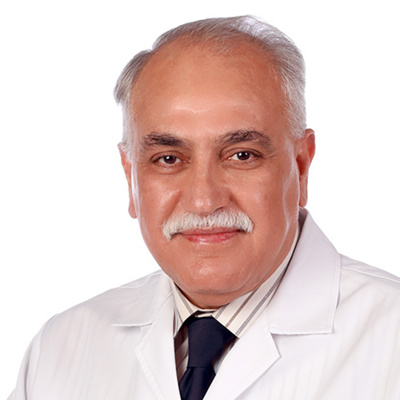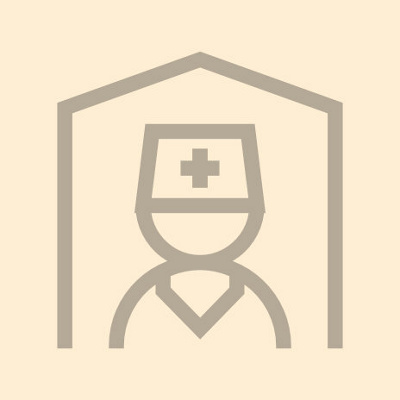Neurophysiology is the investigation of the function of the central and peripheral nervous system. Neurophysiology helps in the diagnosis and management of patients with both central and peripheral neurological diseases, as well the assessment of the integrity of visual, auditory and somatosensory pathways.
The main tests performed in our outpatient department are:
- EEG (Electroencephalogram)
- Sleep deprived EEG
- NCS/EMG (Nerve conduction study/ Electromyography)
- Repetitive nerve stimulation
- Evoked potentials (BAEP, VEP, or SSEP, blink reflex test)
What to expect during your Neurophysiology visit
EEG (Electroencephalography) is where electrical signals of the brain are recorded over a period of time. Electrodes are carefully placed on the patient’s scalp with a conductive cream that amplifies the signal into a readable trace/recording. In order to have a successful EEG the patient must be very still during the recording.
Sleep deprived EEG is similar to a regular EEG. For this test you will need to avoid sleeping or have less sleep on the night before the test. The amount of sleep you can have will be decided by your physician. Sleep deprivation EEG is a recording of the electrical activity of the brain during tiredness and sleep.
NCS (nerve conduction study) is a diagnostic test that allows us to see how well electrical signals are traveling along the nerves. This is done by applying small electrical shocks to the nerve and recording how the nerve responds.
Sometimes, electromyography (EMG) is added on to your NCS appointment to further investigate. EMG is done with a small, thin needle that is inserted in the muscle to check the activity of the muscle.
Evoked potentials (EP) measure the brain’s electrical response to stimulation of the sensory organs or peripheral nerves, evaluating visual, somatosensory and auditory nerve pathways. This involves electronic impulses detected and recorded by electrodes attached to the scalp and skin over various peripheral sensory nerves.
There are four main types of evoked potential tests:
- Visual evoked potentials (VEP): You sit in front of a screen and watch an alternating checkerboard pattern.
- Brainstem auditory evoked potentials (BAEP): You hear a series of clicks in each ear.
- Sensory evoked potentials (SEP): You get short, repetitive, electrical pulses on one of your arms or legs.
- Blink reflex: You get short, repetitive, electrical pulses on your face.
After your procedure
- After your EEG you will have small lumps of cream in your hair. This washes out with warm water and shampoo when you go home.
- NCS will have little dots from marking locations of the nerves; these wash off easily when you go home.
- Analysing all neurophysiology studies takes time. We estimate anywhere between 24-48 hours for a report to be completed and uploaded to your file.
Frequently Asked Questions for EEG
What happens during EEG?
The EEG test will be started by measuring your head. After that, some discs will be stuck to your head using a specific paste. These discs will be then connected to the EEG machine by wires. During the test you are lying down, relaxing and trying to sleep. You will also be asked to follow easy commands such as to open and close your eyes or perform some specific techniques like hyperventilating that may produce changes in your brain activity.
What is a sleep deprivation EEG?
For this test you will need to avoid sleeping or have less sleep on the night before the test. Usually, sleep deprivation EEG is a recording of the electrical activity of the brain while you are still awake but tired and then asleep. This procedure increases the chances of catching abnormal activity during the test. This procedure might also increase the risk that you would have a seizure around the time of having the test. On this day you are not allowed to drive.
Is EEG going to hurt?
No. EEG is pain free. It can be a relaxing test as you must keep your eyes closed and stay still. Many patients fall asleep naturally during their EEG.
How long will an EEG take?
A routine EEG for an adult will take 60 minutes. A sleep deprived EEG for an adult is 90 minutes.
A sleep deprived EEG for children can take 90-120 minutes.
Should I take my medications as normal before my test?
Yes. We encourage you to do everything as normal before your test (unless your neurologist directly told you not to).
Should I eat before my EEG?
Yes. We encourage you to do everything as normal before your test.
Can I drink coffee before my EEG?
No. As we want to capture sleep sometimes, we recommend avoiding coffee directly before the study.
How long should I stay awake the night before my sleep deprived EEG?
We recommend staying up as late as you possibly can the night before your test, maybe 1am or 2am, then wake up at 5am or 6am maximum. This will maximise the chance of you falling asleep during your appointment.
What happens if I don’t sleep during my sleep deprived EEG?
The doctor will review the EEG and what is captured during that time. He/she will decide if the study needs to be repeated or not.
How long does the report take?
We aim to provide a report within 24-48 hours.
Is EEG ok for pregnant women?
Yes. It is perfectly safe and pregnant women can undergo EEG. However, please inform your technician on the day so we can tailor the test.
Are there any side effects to EEG?
There are no side effects. You will, however, have small lumps of cream in your hair that will have to be washed out when you get home.
Do I need to wash my hair before EEG?
Yes. We have a better contact with the scalp if it is free from oils, dirt or creams.
We advise to wash your hair the night before, or the morning of, but it must be dry on arrival.
I have been prescribed Melatonin for my child’s EEG. When do I give it?
Melatonin is a hormone we make in the body. Your melatonin prescription is a synthetic version of this hormone to help your child fall asleep quicker for the EEG.
We recommend giving this medication when you have checked in and are in the waiting area.
There is a short window of 20 minutes for this medication to work, therefore the nearer to the beginning of the EEG, the better.
Frequently Asked Questions for NCS and EP
(Nerve conduction studies and evoked potentials)
What is a nerve conduction study?
It is a study of a selection of nerves in your arms or legs, where small electrical shocks are applied to the nerve and we record how the nerve responds.
Is NCS painful?
Technically there is no pain. However, some people find it uncomfortable. We are putting little electrical shocks into the nerves to see how well they are working, which makes your fingers/toes do little involuntary jumps.
IS BAEP painful?
No. This test involves listening to a series of clicks. There is no pain involved in this test.
I have to have EMG and NCS. Is EMG painful?
EMG uses a small thin needle which is inserted into the muscle. There is a little pinch when it is inserted, but once it’s in, there is no further pain. The doctor will ask you to flex/tense certain muscles in order to record the activity of the muscle via this needle.
Is VEP painful?
No. There is no pain with this test. This test involves you looking at a checkerboard screen while we record the speed of your optic nerve. Little lumps of cream will be used in your hair, which will have to be shampooed out when you go home.
I am pregnant, can I partake in nerve conduction studies or EP?
Yes, it is fine for you to do most of these tests, but some adjustments might have to be made.
Please inform your technician on arrival so that we can tailor the tests accordingly








